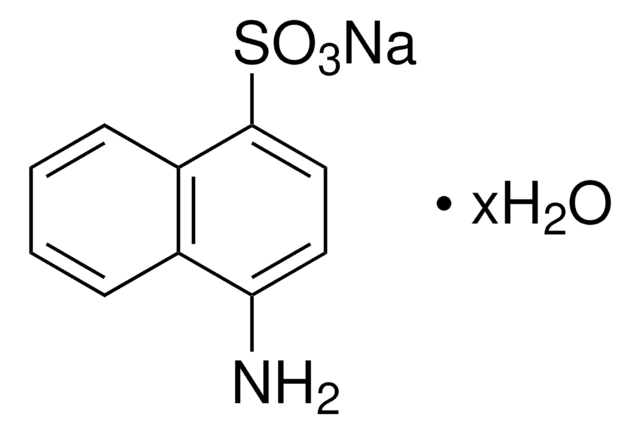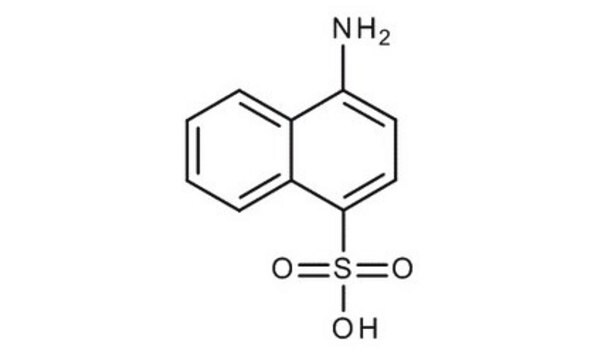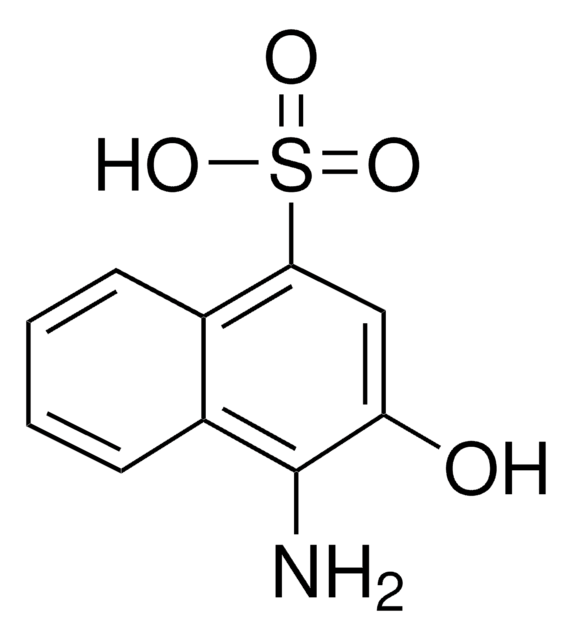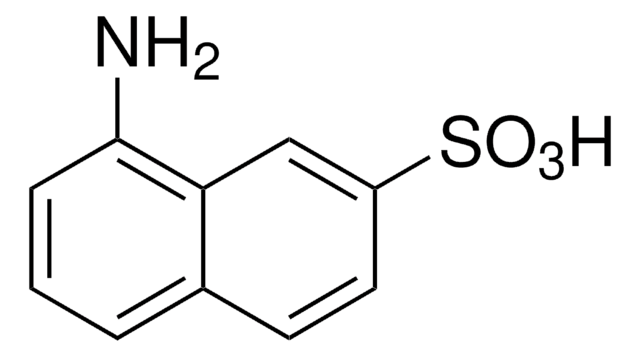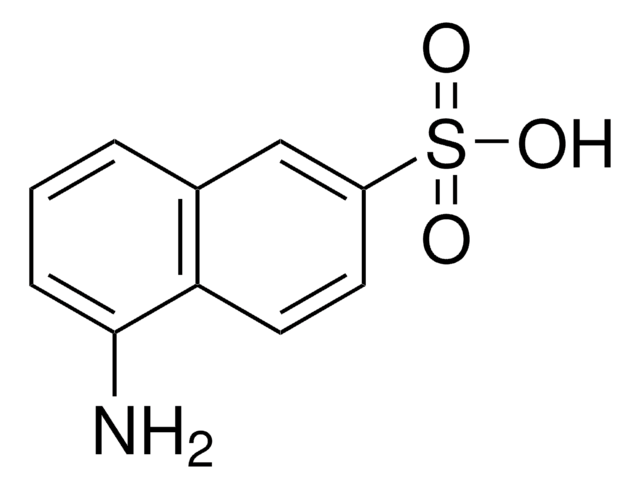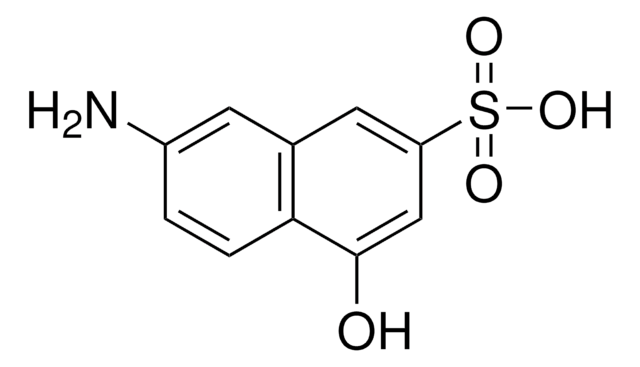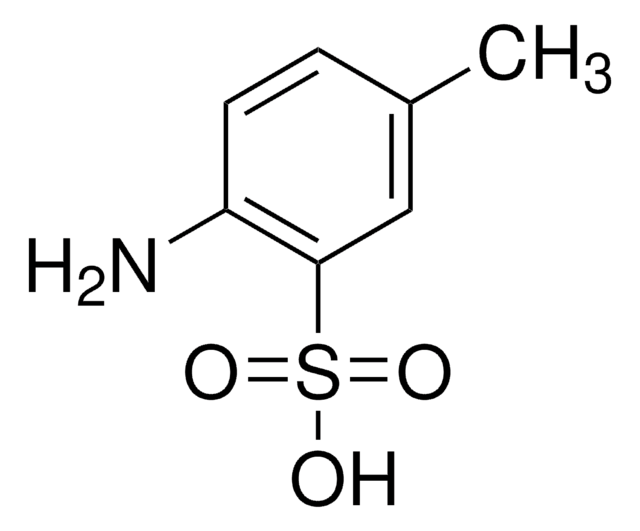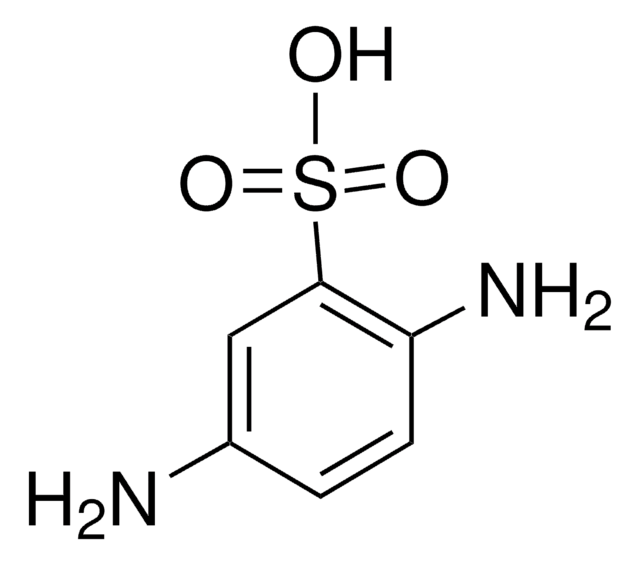250619
4-Amino-1-naphthalenesulfonic acid
97%
Synonym(s):
1-Naphthylamine-4-sulfonic acid, Naphthionic acid
About This Item
Recommended Products
Quality Level
assay
97%
form
powder
mp
≥300 °C (lit.)
solubility
water: very slightly soluble(lit.)
SMILES string
Nc1ccc(c2ccccc12)S(O)(=O)=O
InChI
1S/C10H9NO3S/c11-9-5-6-10(15(12,13)14)8-4-2-1-3-7(8)9/h1-6H,11H2,(H,12,13,14)
InChI key
NRZRRZAVMCAKEP-UHFFFAOYSA-N
Looking for similar products? Visit Product Comparison Guide
General description
Application
signalword
Danger
hcodes
Hazard Classifications
Skin Corr. 1B
Storage Class
8A - Combustible corrosive hazardous materials
wgk_germany
WGK 3
flash_point_f
Not applicable
flash_point_c
Not applicable
ppe
Eyeshields, Faceshields, Gloves, type P3 (EN 143) respirator cartridges
Choose from one of the most recent versions:
Already Own This Product?
Find documentation for the products that you have recently purchased in the Document Library.
Customers Also Viewed
Our team of scientists has experience in all areas of research including Life Science, Material Science, Chemical Synthesis, Chromatography, Analytical and many others.
Contact Technical Service